Adaptogenic Mushrooms
We all know what a mushroom is, but what makes specific ones adaptogenic? Well, there are certain species that fit a special category of herbs that have medicinal compounds called adaptogens. This means they help your body deal with the negative effects of stress, such as increased inflammation, depleted energy levels, damaged blood vessels and various types of hormonal imbalances. They have been used in ancient Chinese medicine as well as in Ayurvedic practices originating in India to cure ailments and to offer a long list of health benefits. Adaptogenic mushrooms are safe, non-toxic and support the body’s immune system, as well as its response to stress. This is because they have a balancing effect on something called the hypothalamic-pituitary-endocrine axis. This is the delicate dance between your brain and hormonal system.
Reishi
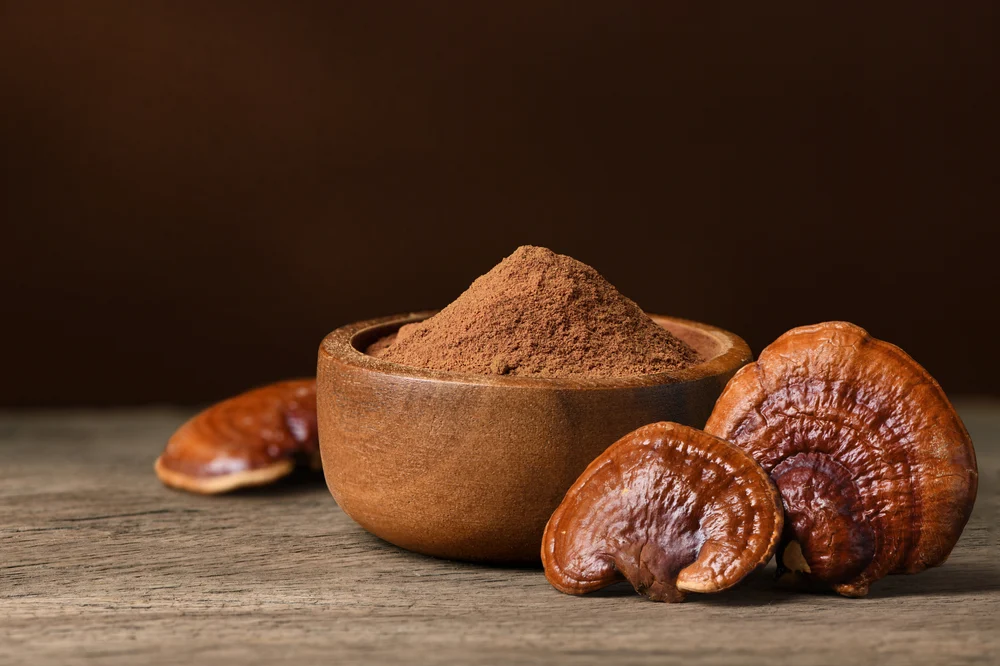
Reishi is one of the most commonly used adaptogenic mushrooms because of its benefits to overall wellness. It is a medicinal fungus that has been used for its healing abilities for thousands of years and fits the definition of a true superfood. Studies have repeatedly shown that reishi mushrooms have antioxidant abilities that allow them to strengthen the body’s defenses against cancer, autoimmune conditions, heart disease, allergies, infections and mental clarity. In addition, triterpenes and beta-glucans found in reishi may help reduce overall cholesterol and LDL (bad cholesterol).
Because they work as an “immune modulator,” reishi mushrooms can help restore hormonal balance, bringing the body back to homeostasis and regulating the activity of the immune system. This can help fight tumors and cancerous cells.
Believe it or not, this all just skims the surface of the health benefits that reishi mushrooms have to offer. You can get locked in a serious deep dive with this powerful adaptogen!
Cordyceps
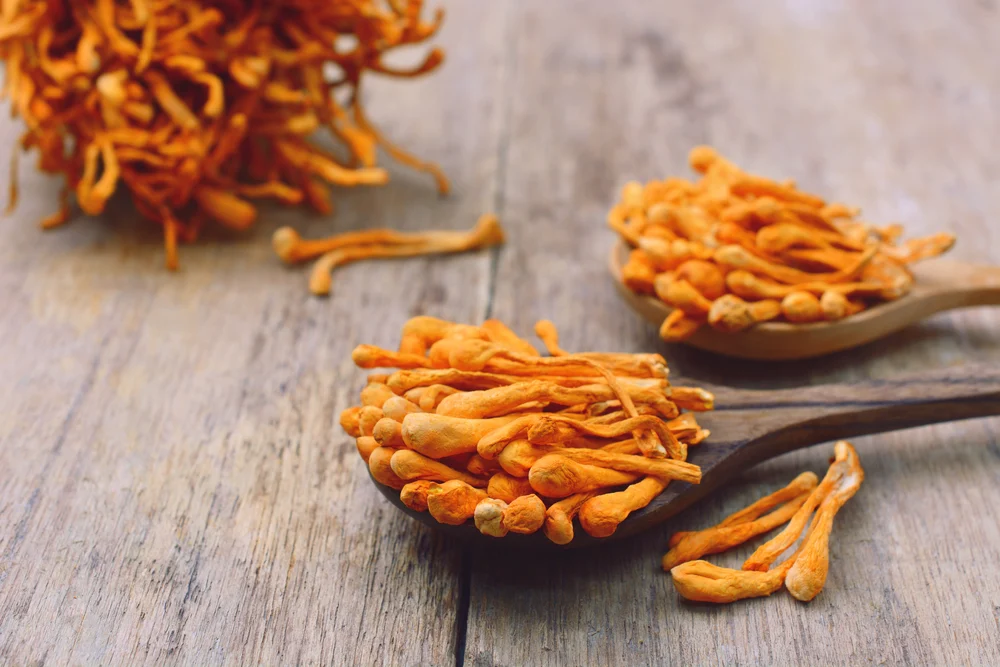
This medicinal mushroom has been a staple in holistic medicine for centuries and has long been revered for its potent anti-aging and health-promoting properties. Prized for their natural ability to fight free radicals, infections and inflammation, these are impressive disease-fighting mushrooms that have been used to reduce symptoms of respiratory disorders, coughs, colds, liver damage just to name a few. They can slow the effects of aging and stress, help keep the body free from disease and support adrenal glands thereby helping your body produce and maintain consistent energy levels.
They also increase the production of adenosine triphosphate (ATP), which increases cellular oxygen absorption, improving the flow of oxygen throughout the body. It has been used in Eastern medicine to reduce fatigue and boost strength and sex drive.
I mean, what more do you need? Well, a little extra sprinkle of turkey tail couldn’t hurt…
Turkey tail
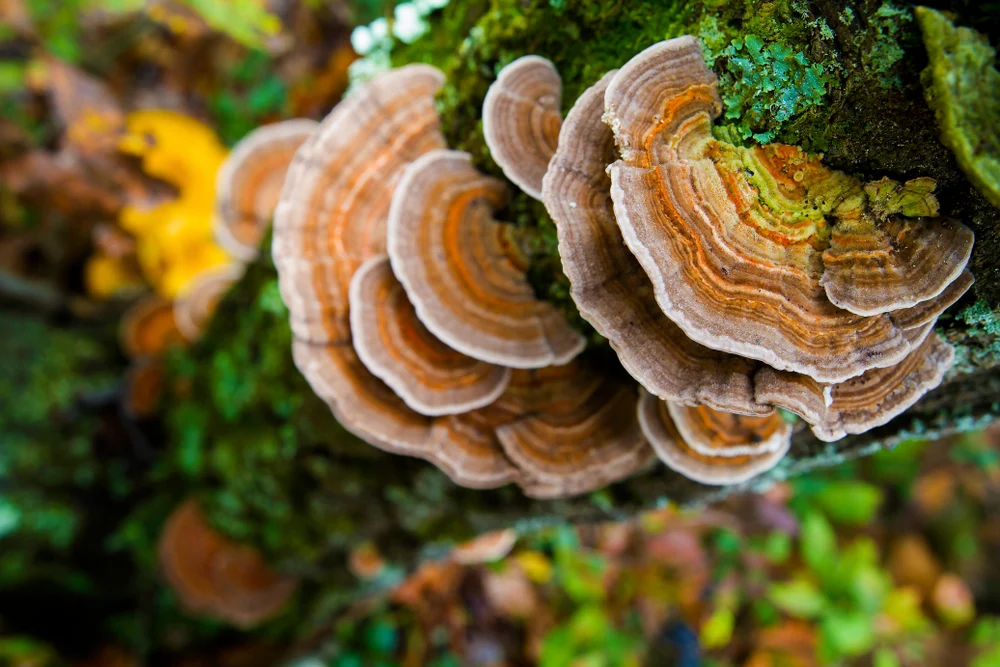
If you’ve taken a hike in the woods, you’ve probably seen plenty of turkey tail mushrooms because they grow abundantly on dead and fallen trees, branches and stumps. To put it frankly, it is an immune-boosting powerhouse. They are equipped with strong antiviral and antimicrobial properties which makes them effective in preventing and treating viral infections. It is also loaded with antioxidants, helping to inhibit or reduce damage caused by oxidative stress which can cause inflammation or cellular damage. Oxidative stress is linked to an increased risk of developing health conditions such as certain cancers and heart disease.
Many studies have also shown that turkey tail boosts immune function in cancer patients undergoing chemotherapy. In Japan it is revered for its potential antitumor mechanisms and its ability to treat pulmonary disease. The Japanese make a purified hot water extract from turkey tail and use it as an adjuvant treatment for cancer.
Turkey tail also contains prebiotics, offering gut-healing benefits that feed the good bacteria (remember the fermented foods and probiotics we talked about?!) in the microbiome. Here are some more of its wonders:
- Prevents and treats the common cold and flu
- May help combat cance
- Provides support to chemo patients
- Helps treat Human Papilloma Virus (HPV)
- Aids in digestion
- May help patients with HIV/AIDs
Chaga
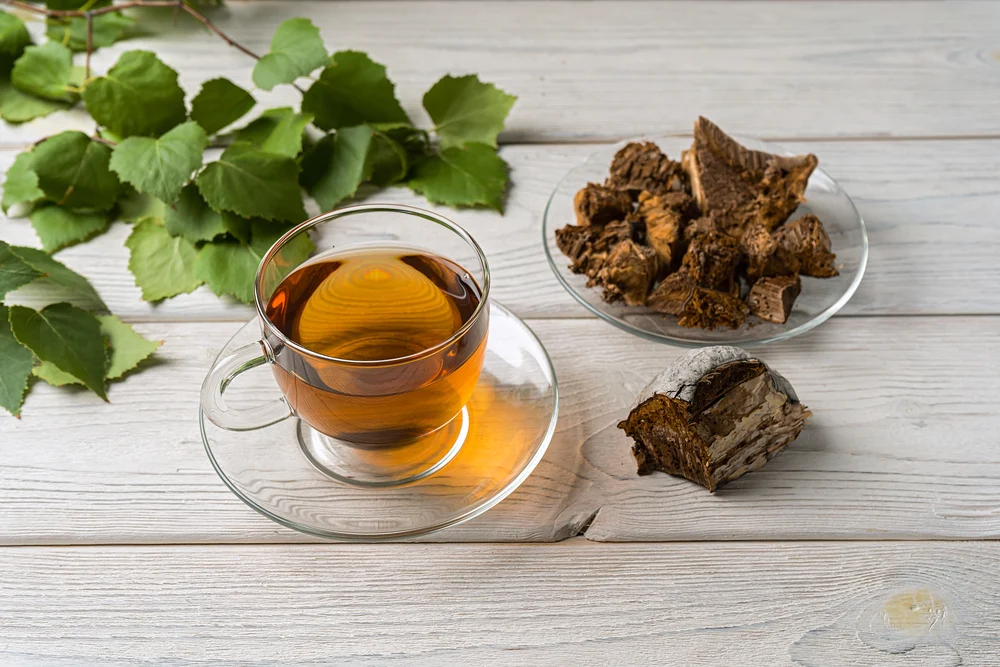
This superfood has one of the highest ORAC scores of any food. “What in sweet Mother Mary’s name are you talking about?”, you may ask. Well ORAC stands for “oxygen radical absorbent capacity.” The higher the ORAC value, the better a food’s ability to protect the body from disease-causing free radicals.
Chaga is an antioxidant-rich adaptogenic mushroom that’s effective in reducing inflammation, lowering blood sugar, reducing blood pressure, supporting digestive health, getting rid of parasites and alleviating arthritis, and even preventing or slowing the progression of cancer–particularly in the liver, lung, and the brain.
They have been used as traditional medicine in Northern European countries as well as Russia for hundreds of years as a treatment for diabetes, gastrointestinal cancer, as well as heart disease.
Shiitake
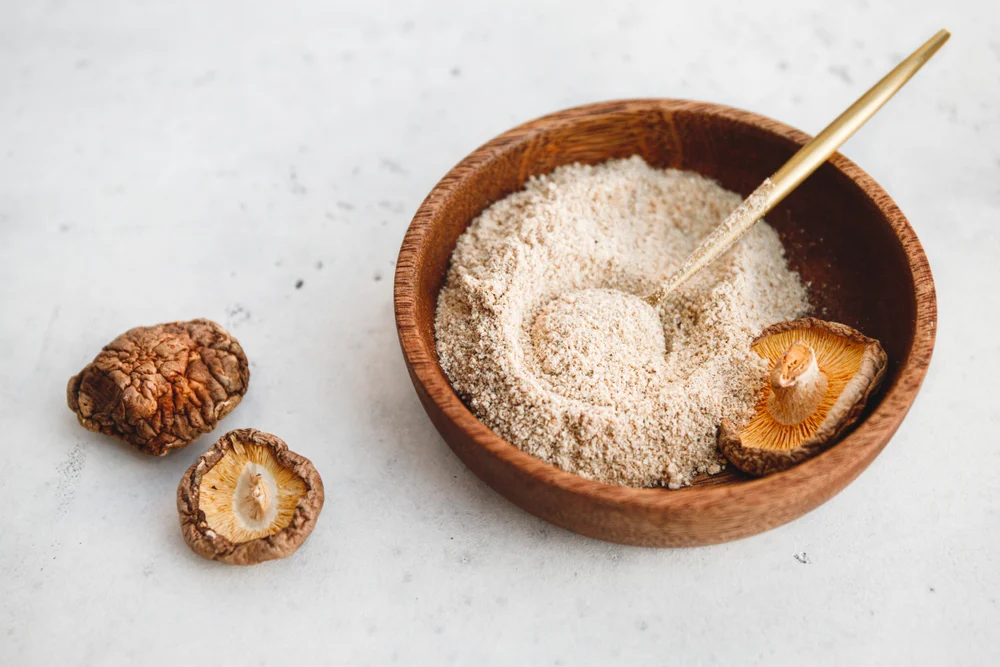
Shiitake mushrooms are usually easiest to find in the supermarket. They are rich in B vitamins, vitamin D and zinc. There are three main compounds in shiitake that help lower cholesterol: eritadenine, sterols, and beta-glucans. Studies have also shown that it may reverse age-related decline in immune function.
Lion’s Mane
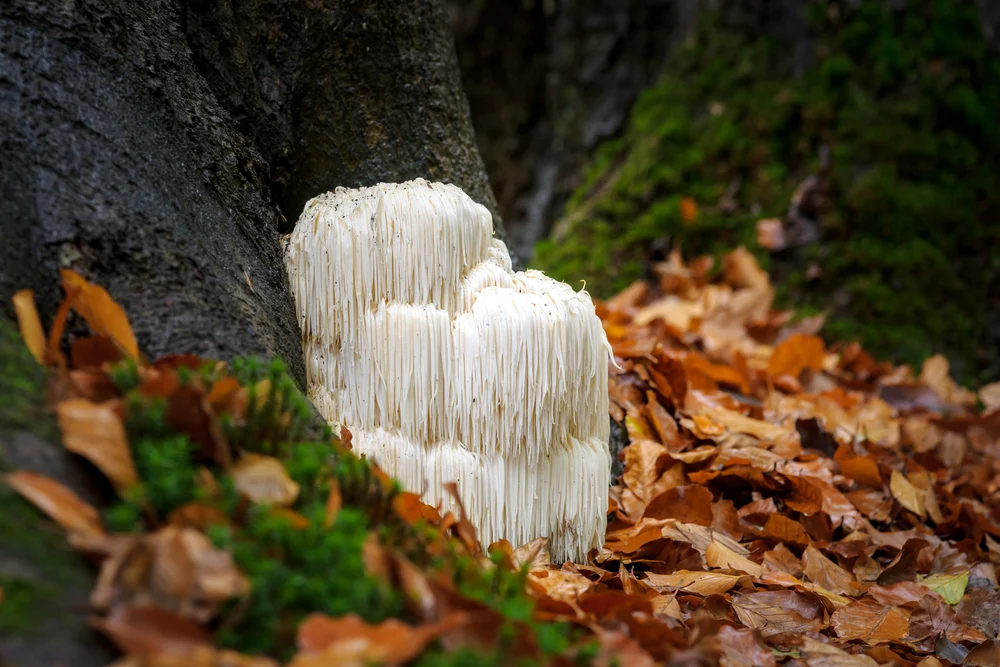
I often see this one in my local grocery store and at first glance, it actually looks like a lion’s mane due to their long, dangling spines that are usually greater than a centimeter in length. They look a little bit freaky Friday, but the health benefits substantially outweigh the freak factor. One study published in the Journal of Agricultural and Food Chemistry states the benefits of lion’s mane mushroom are “antibiotic, anticarcinogenic, antidiabetic, anti-fatigue, antihypertensive, anti-hyperlipodemic, anti-senescence (anti-aging), cardioprotective, hepatoprotective, nephroprotective, and neuroprotective, and improves anxiety, cognitive function, and depression.” Simply put, it has been shown to improve memory and immune function and is beneficial in treating anxiety and depression.
Studies have also reported that lion’s mane was effective in improving mild cognitive impairment. In addition, compounds found in lion’s mane stimulate the production of NGF (Nerve Growth Factor), a bioprotein that plays a critical role in the maintenance, health, and regeneration of neurons in the brain. A low amount of NGF is usually associated with Alzheimer’s and other degenerative brain diseases like dementia.
Might as well go ahead and throw another bushel on the wagon.
One thing you have to be aware of when buying mushroom powders or capsules is that, with all supplements, not all products are created equally and with the highest standards. The medicinal mushroom marketplace is dominated by products that do not contain any mushrooms. These products are produced from mycelium (the root system of the mushroom) being grown on grain. Commonly marketed as “mushroom” yet they contain no mushrooms at all. On top of that, the grain is not separated from the mycelium so these products are primarily the grain that the mycelium is growing on. If you are paleo or on a grain-free diet, you want to be extra careful about this.
Many consumers and even health practitioners are being misled into believing they are consuming mushrooms when in fact the products are nothing more than mycelium cultured grain. Very few of the important medicinal compounds found in medicinal mushrooms are contained in these products. So when you buy these mushroom supplements, you want to make sure it is the ‘fruiting body’ they produce it with, not the mycelium. Two high quality companies that I trust are Sunday Naturals (if you are in Germany) and Real Mushrooms (U.S.A.).
